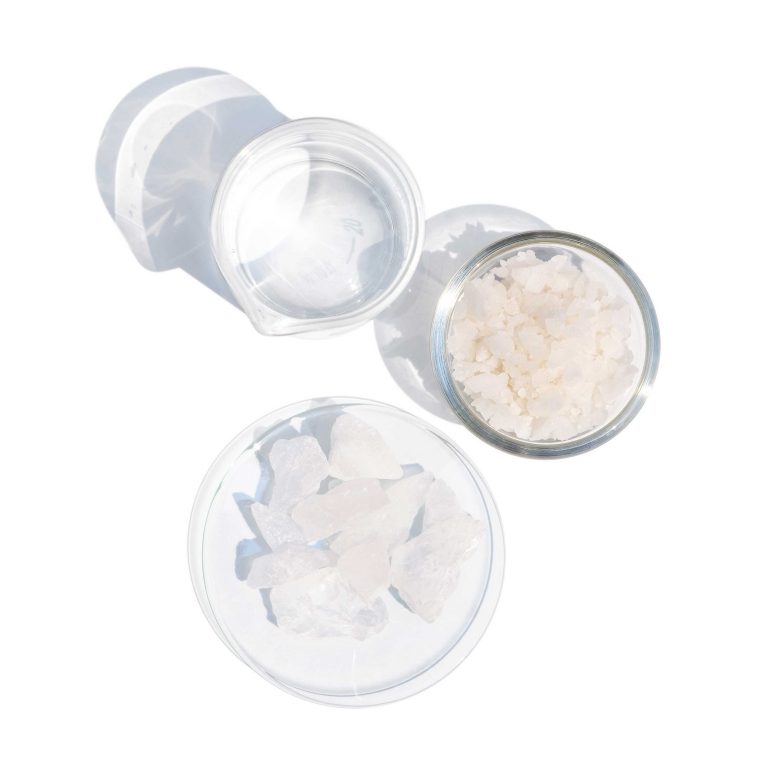- Home
- sport and motion
- Magnesium: Why Is It Important for Our Health and Who Might Have a Deficit?
Magnesium: Why Is It Important for Our Health and Who Might Have a Deficit?
- Magnesium is the fourth most common mineral in the human body and is important and vital for the proper functioning of cells, muscles, heart and the nervous system.
- 50% of magnesium is in the bone, and the rest in other tissues and body parts.
- Much of the population suffers from magnesium deficiency because of absorption issues, use of medications, and stress.

It’s essential for the heart, bones, and muscles. Magnesium deficiency has health implications, and it’s more common than you’d think. Who is at a higher risk of magnesium deficiency? How do you know if you suffer from a deficiency and which magnesium supplement you should take? Here are a few facts about magnesium to sort things out.
Magnesium is one of the most important minerals in our body
The magnesium mineral is important for the heart and blood vessels, it relaxes muscles and that’s how it affects vascular tone and prevents hypertension. It’s important for the proper functioning of the muscles and the nervous system, takes part in producing neurotransmitters and is essential for the integrity of the bones. About 50% of magnesium in the body is in the bones and the rest is in other muscles and tissues; only 1% of it is in the blood.
How do you know if you have a magnesium deficiency?
A simple blood test can’t trace magnesium deficiency since its level in the blood doesn’t reflect its level within the tissues. Since it takes part in many processes in the body, a magnesium deficiency might be expressed otherwise, mostly as muscle spasm, and especially at the back of the shin.
What can cause magnesium deficiency?
Drinking water is a main source for minerals, especially magnesium. When there’s a lack of magnesium in the drinking water, it usually leads to magnesium deficiency in the population. This can manifest in magnesium deficiency in all group ages and leads to severe health implications.[MT1]
Who is at risk of magnesium deficiency?
There are parts of the population that are more susceptible to magnesium deficiency. For instance, this deficiency is common in the elderly since they have reduced absorption ability and use certain medications. There are medications that interfere with magnesium absorption and others that increase the discharge of this mineral through urination. People who exercise a lot are also at risk of having a magnesium deficiency, as well as stressful situations.
Magnesium and sports
Extreme physical exercise requires increased energy production, which in turn requires higher levels of magnesium. There’s a transfer of magnesium from the blood stream into the cells during exercise, while at the same time there’s a loss of the mineral through sweating and urination.
Ongoing stress and magnesium deficiency
Prolonged stress causes an increased consumption of magnesium in the cells, as well as a discharge of adrenalin, which increases the discharge of magnesium through the urine.
Typical Western diet is low on magnesium
Dietary changes in Western culture are linked to decreased magnesium consumption. Consuming foods that are low in magnesium, such as legumes, whole wheat, and vegetables, and increased consumption of processed foods, such as distilled grains (white flour, white rice, etc.), that contain low levels of vitamins and minerals – magnesium being one of them – leads to a decrease in the magnesium concentration in the body. Another issue is the change in the quality of food due to modern agriculture. Fruits and vegetables do not contain a high level of magnesium for two reasons: first, the amount of magnesium in irrigation is low (effluent or desalinated water). Second, using chemical fertilizers and pesticides reduces the magnesium absorption in agricultural produce.
Magnesium in food
The magnesium mineral is naturally found in vegetables, fruits, seeds, nuts, almonds and legumes, whole wheat and cocoa. Green vegetables are the richest source of magnesium thanks to their high level of chlorophylls. It’s important to know that magnesium is not heat-sensitive but most of it transfers to the cooking water, like most minerals. That’s why it’s best to use the cooking water as well, for instance in soups or by adding them to other dishes, this way you also get the magnesium and other minerals.
The daily allowance of magnesium according to the Ministry of Health
Women:
Ages 19-30: 310mg per day
Ages 31-50: 310mg per day
Ages 51 and up: 320mg per day
Pregnant women: 360-400mg per day (depending on their age).
Breastfeeding women: 320-360mg per day.
Men:
Ages 19-30: 410mg per day
Ages 31 and up: 420mg a day
How can you increase your magnesium intake?
One of the ways to maintain a proper level of magnesium has to do with improving your diet. Consuming magnesium-rich foods, such as vegetables – especially fresh green ones – cocoa, semisweet chocolate, seeds and unroasted nuts, legumes and whole wheat. At the same time, you should reduce processed foods to a minimum. Another way of increasing magnesium intake is by taking a supplement.
Which magnesium supplement should I take?
The important thing about the supplement is its absorption efficiency. The thing that mostly effects magnesium’s absorption is its bonding. There are many derivatives of magnesium, with the main ones being magnesium oxide and magnesium citrate. Magnesium citrate is better absorbed since its bonded to citric acid. This bonding has an advantage, since magnesium needs an acid environment in order to be absorbed. The acidity level in the stomach decreases in adults, sometimes due to antiacid medications or health issues. This might affect the absorption of minerals, including magnesium, which is why it’s better for absorption.












